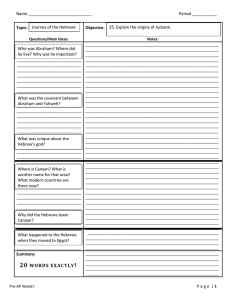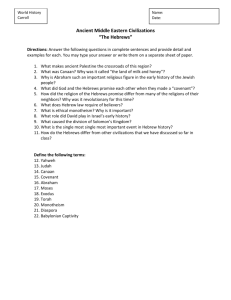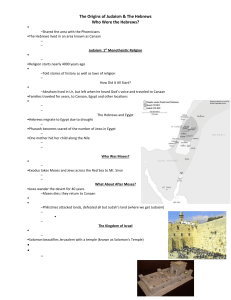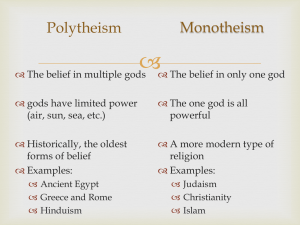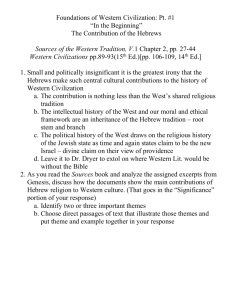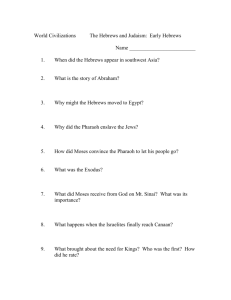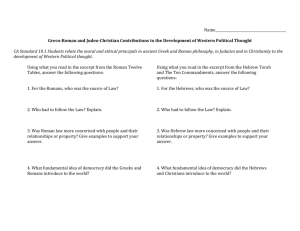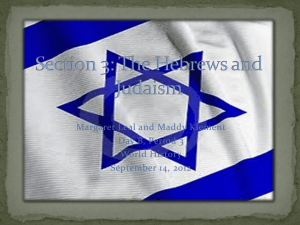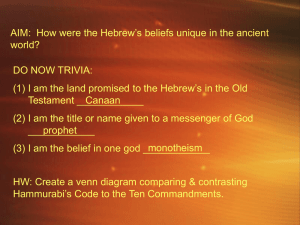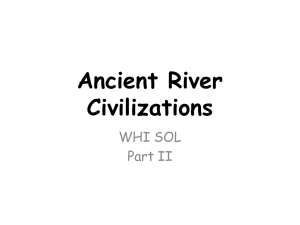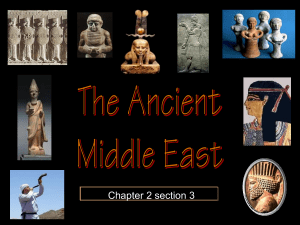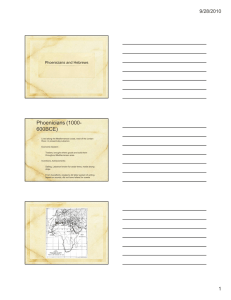Review for Chapter 6 Test Friday, November 20th Phoenicians
advertisement
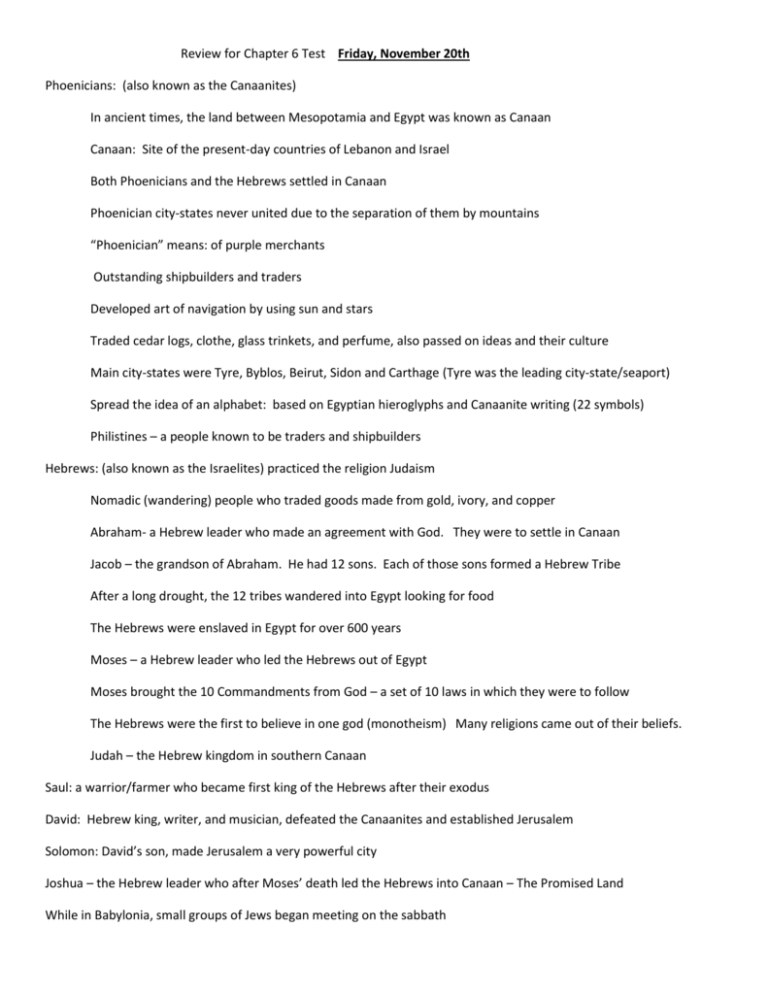
Review for Chapter 6 Test Friday, November 20th Phoenicians: (also known as the Canaanites) In ancient times, the land between Mesopotamia and Egypt was known as Canaan Canaan: Site of the present-day countries of Lebanon and Israel Both Phoenicians and the Hebrews settled in Canaan Phoenician city-states never united due to the separation of them by mountains “Phoenician” means: of purple merchants Outstanding shipbuilders and traders Developed art of navigation by using sun and stars Traded cedar logs, clothe, glass trinkets, and perfume, also passed on ideas and their culture Main city-states were Tyre, Byblos, Beirut, Sidon and Carthage (Tyre was the leading city-state/seaport) Spread the idea of an alphabet: based on Egyptian hieroglyphs and Canaanite writing (22 symbols) Philistines – a people known to be traders and shipbuilders Hebrews: (also known as the Israelites) practiced the religion Judaism Nomadic (wandering) people who traded goods made from gold, ivory, and copper Abraham- a Hebrew leader who made an agreement with God. They were to settle in Canaan Jacob – the grandson of Abraham. He had 12 sons. Each of those sons formed a Hebrew Tribe After a long drought, the 12 tribes wandered into Egypt looking for food The Hebrews were enslaved in Egypt for over 600 years Moses – a Hebrew leader who led the Hebrews out of Egypt Moses brought the 10 Commandments from God – a set of 10 laws in which they were to follow The Hebrews were the first to believe in one god (monotheism) Many religions came out of their beliefs. Judah – the Hebrew kingdom in southern Canaan Saul: a warrior/farmer who became first king of the Hebrews after their exodus David: Hebrew king, writer, and musician, defeated the Canaanites and established Jerusalem Solomon: David’s son, made Jerusalem a very powerful city Joshua – the Hebrew leader who after Moses’ death led the Hebrews into Canaan – The Promised Land While in Babylonia, small groups of Jews began meeting on the sabbath Treaties: agreements between countries Sabbath: a day of rest Holy of Holies: most-sacred chamber murex: a shellfish that creates a purple dye Colonies: permanent settlements Exodus: the Hebrew’s escape from Egypt Descendants: offspring covenant: an agreement with God Social justice: everyone had a right to be treated fairly Torah: the name of the 5 books of the laws of Moses Judge: settled disputes and led troops into battle Dido- the legendary founder of Carthage Psalms: sacred songs Prophets: persons claiming to have messages from god
